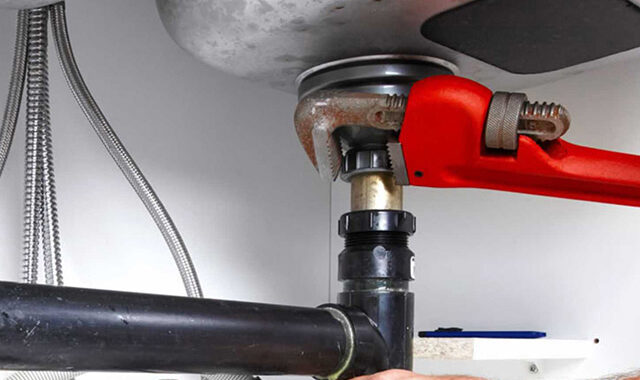First-Time Condo Renters

Renting a condo for the first time can be both exciting and daunting. Condos offer a unique blend of apartment and house living, often providing amenities and community features that other rental options may not. To help you navigate this significant milestone, we’ve compiled a comprehensive guide filled with top tips for first-time condo renters. Whether you’re moving out for the first time or transitioning from another type of rental, these tips will ensure a smooth and enjoyable experience.
1. Understand the Basics of Condo Living
What is a Condo?
A condominium, or condo, is a private residence within a larger building or complex. Condos are typically individually owned units, unlike apartments that are usually rented from a single owner or management company. This ownership structure means that condo communities often have a homeowners’ association (HOA) that manages communal areas and enforces rules.
Pros and Cons of Condo Living
Pros:
- Amenities: Many condos offer shared amenities like gyms, pools, and common areas.
- Maintenance: Exterior maintenance and common areas are typically handled by the HOA.
- Security: Condos often have enhanced security features like gated entries and surveillance cameras.
Cons:
- HOA Fees: Monthly or annual fees for maintenance and amenities.
- Rules and Regulations: HOAs enforce rules that can affect your freedom to make changes to your unit or how you use communal spaces.
2. Budgeting for Condo Living
Calculate Total Costs
When budgeting for a condo, consider all associated costs beyond the monthly rent. These may include:
- HOA Fees: Regular fees for the maintenance of communal areas and amenities.
- Utilities: Check if utilities like water, electricity, and internet are included in the rent.
- Insurance: Renter’s insurance to cover your personal belongings.
Factor in Security Deposits and Upfront Costs
Expect to pay a security deposit, which is typically equivalent to one or two months’ rent. Additionally, some HOAs may require a move-in fee or deposit to cover potential damage to communal areas during your move.
3. Finding the Right Condo
Location, Location, Location
Choose a condo in a location that suits your lifestyle and daily needs. Consider proximity to:
- Work or School: Reduce your commute time to save both time and money.
- Public Transport: Easy access to public transport can be a significant convenience.
- Amenities: Look for nearby grocery stores, parks, restaurants, and entertainment options.
Evaluate the Condo Community
Before committing, evaluate the condo community to ensure it aligns with your lifestyle:
- Community Rules: Review the HOA’s rules and regulations.
- Noise Levels: Visit the property at different times of the day to gauge noise levels.
- Community Vibe: Talk to current residents to get a sense of the community atmosphere.
4. Thoroughly Inspect the Condo
Check for Maintenance Issues
Before signing a lease, inspect the condo for any maintenance issues. Look for signs of:
- Water Damage: Check ceilings, walls, and under sinks for leaks or water stains.
- Electrical Problems: Test all lights, outlets, and appliances.
- Pest Infestations: Look for evidence of pests such as droppings or nests.
Verify the Condition of Appliances and Fixtures
Ensure that all appliances and fixtures are in good working order. Test the stove, refrigerator, dishwasher, and any other included appliances. Note any existing damages and report them to the landlord to avoid being held responsible later.
5. Understand Your Lease Agreement
Key Lease Terms
Carefully review the lease agreement to understand key terms such as:
- Lease Duration: Ensure the lease term matches your plans.
- Rent Payment: Understand when and how rent is to be paid.
- Renewal Options: Know the process and terms for renewing your lease.
HOA Rules and Regulations
Familiarize yourself with the HOA rules, as they can significantly impact your living experience. Rules may cover:
- Noise Restrictions: Quiet hours and noise level limitations.
- Pet Policies: Regulations regarding pet ownership.
- Common Area Usage: Guidelines for using shared amenities.
6. Prepare for Move-In Day
Plan Your Move
Coordinate your move to minimize stress. Consider:
- Booking a Moving Company: Schedule your move with a reliable moving company.
- Reserving Elevators: Some condo buildings require reservations for moving day use of elevators.
- Packaging Properly: Use appropriate packing materials to protect your belongings.
Notify Relevant Parties
Update your address with:
- Postal Service: Forward your mail to your new address.
- Utilities: Set up or transfer utility accounts.
- Insurance Providers: Update your address with your insurance companies.
7. Get to Know Your Neighbors and Community
Introduce Yourself
Building good relationships with your neighbors can enhance your condo living experience. Introduce yourself and attend community events if available.
Participate in HOA Meetings
Attend HOA meetings to stay informed about community issues and to have a say in decisions that affect your living environment.
8. Stay on Top of Maintenance
Routine Maintenance Tasks
Regularly perform routine maintenance tasks to keep your condo in good condition:
- Change Air Filters: Regularly replace HVAC filters to maintain air quality.
- Clean Appliances: Keep appliances clean and in good working order.
- Check for Leaks: Regularly inspect for leaks to prevent water damage.
Reporting Issues
Promptly report any maintenance issues to your landlord or HOA. Early reporting can prevent minor issues from becoming major problems. Looking to buy a condo? Then check out chuan park condo for sale for further info.

9. Understanding Your Rights and Responsibilities
Know Your Tenant Rights
Familiarize yourself with local tenant laws to understand your rights, which may include:
- Right to Privacy: Landlords must provide notice before entering your unit.
- Maintenance Obligations: Landlords are typically responsible for maintaining the property in a habitable condition.
- Rent Control: Some areas have rent control laws limiting rent increases.
Respect Community Rules
Adhering to HOA rules and regulations is crucial for maintaining a positive living environment. Violations can result in fines or other penalties.
10. Planning for the Future
Lease Renewal or Termination
As your lease term nears its end, decide whether to renew or move out. Review the renewal terms or termination notice period in your lease agreement.
Moving Out
If you decide to move out:
- Provide Notice: Give the required notice to your landlord.
- Clean the Unit: Thoroughly clean the condo to ensure the return of your security deposit.
- Conduct a Final Walkthrough: Schedule a final inspection with your landlord.
Conclusion
Renting a condo for the first time is a significant step that requires careful planning and consideration. By understanding the basics of condo living, budgeting effectively, finding the right condo, and thoroughly inspecting the property, you can ensure a smooth and enjoyable rental experience. Remember to stay informed about your rights and responsibilities, participate in your community, and maintain your condo to make the most of your new home.


 SEO for E-Commerce Platforms
SEO for E-Commerce Platforms  Air Conditioning Repairs You Should Know About
Air Conditioning Repairs You Should Know About  Sea Moss into Your Daily Meals
Sea Moss into Your Daily Meals  Data Storage for Personalized Medicine
Data Storage for Personalized Medicine  Tips for Maintaining Your Plumbing System
Tips for Maintaining Your Plumbing System  CBD in Managing Arthritis Symptoms
CBD in Managing Arthritis Symptoms